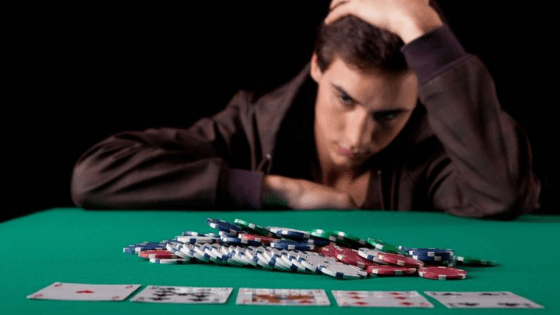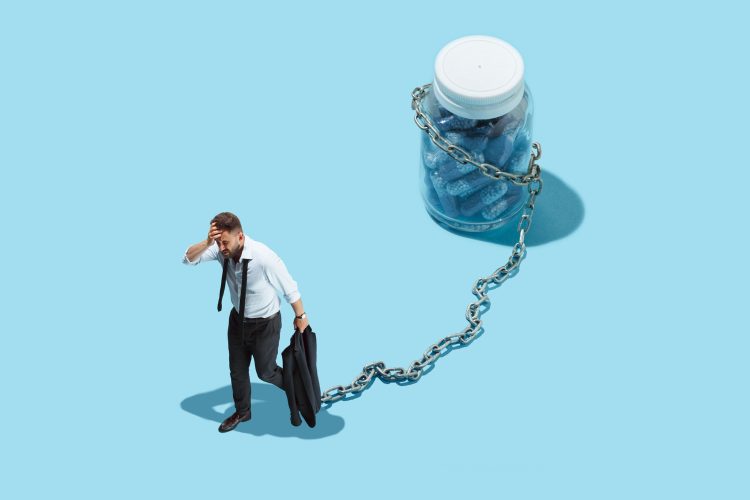
Gambling Addiction
Gambling can be a fun and exciting recreational activity; the nervous anticipation of the next card to be dealt, or rolling the dice, perhaps the heightened enjoyment of a football match on which you have a small monetary stake? What’s not to like? For some, however, gambling shifts from casual low risk pastime into serious addiction. Addiction can form when an individual begins to lose control and when it begins to affect a person’s financial, familial, social, recreational, educational, or occupational functioning.
Gambling, like some forms of substance abuse is associated with a release of dopamine in the brain. Studies show sometimes as much as 10 times more than what is normal. Dopamine has been referred to as the “feel good” neurotransmitter, and this special signalling chemical is active throughout the reward centres of the brain. So the release of dopamine tells your brain, “This feels good, give me more!” What begins as a harmless good feeling can turn into a compulsive need in some people. This happens because of the body’s natural response to external stimulation of dopamine production. In essence the dopamine neurotransmitters come to rely on the gambling to do their work for them. This natural physiological tendency creates a tolerance, which drives a need increased gambling in order to receive the same rush. Before long much like an addiction to substances, gambling becomes the vehicle of dependence to cause the addict continually seek it out to feel good or even to feel normal.
There is some evidence to suggest that certain people may be more physiologically and temperamentally vulnerable to gambling addiction than others. Some character indicators are those with an impulsive nature, those who seek out activities that provide immediate rewards and those who tend not to consider long-term consequences of actions. Some studies show that people who become addicted to gambling may actually produce lower levels of serotonin, which is associated with a general lack of interest in activities or a lack of pleasure derived from most activities (known as anhedonia in the mental health community). This may cause a person to engage in activities that increase the amount of serotonin in the brain, leading to feelings of happiness and pleasure that others may feel without the added stimulus. Other studies show that gambling addicts much like some who suffer substance abuse are genetically predisposed. These studies provide evidence that the parts of the brain that control inhibition and allow a person to think through potential consequences and rewards for certain actions may be under-active, leading to impulsivity and reward-seeking.
The following behaviours are signs that you may have a gambling addiction:
- obsessing over any type of gambling
- gambling to feel better about life
- failing to control your gambling
- avoiding work or other commitments to gamble
- neglecting bills and expenses and using the money for gambling
- selling possessions to gamble
- stealing money to gamble
- lying about your gambling habit
- feeling guilty after a gambling session
- escalating risks vs rewards while gambling
The following behaviours are signs that someone you know may have a gambling addiction:
- The individual may have more mood swings where they seem to be “high” some days and deeply depressed, withdrawn, or snappy other days.
- The individual may be neglecting bills, asking you for money frequently, or stealing from you.
- The individual may be are skipping school or work. This may coincide with poor performance in those areas as well.
- The individual’s time spent is unaccounted for along with discrepancies in their explanations.
- The individual may become reluctant to make plans with you or keep the plans that they make with you.
- The individual may be spending an inordinate amount of time online and become defensive when questioned.
- The individual may increasingly abuse drugs or alcohol. Gambling and substance use often go hand in hand because they trigger the release of the same feel-good chemical in the brain.
Here at Ibiza Calm, have highly trained professionals to help deal with gambling addiction. If you or a loved one exhibits any or all of the behaviours discussed in this article, please don’t hesitate to contact us in order to begin the process of ending the destructive cycle.
(SPAIN) +34 664 443 433
(UK) +44 203 868 5710
Share this information, choose your platform!
Alcoholism: A family affair
COA Week, (led in the UK, by the charity NACOA UK) is an annual, international campaign to raise awareness of children affected by a parent’s drinking. Run yearly, since 2009, during the week in which Valentine’s Day falls. NACOA UK …
Prescription medication: A hidden killer – what is the alternative?
For many, the idea of drug addiction will be illicit drugs, bought on a street corner. However, drug abuse comes in many forms, and it is just as likely for people to misuse pills which have been prescribed to them …
What are “the Holiday Blues”?
For many the festive season is perceived as a period of joy. Lots of entertainment, excitement, parties, and general good cheer. But for some individuals it can be a time of sadness, isolation, painful or traumatic memories, illness, depression and …
Burn-out; The Disease Of The Working World
Cancer to diabetes, strokes to heart disease and now… burn-out. Although not yet classified as a ‘medical condition’ this year we saw burn-out being included in the 11th revision of the Classification of Diseases, under ‘Occupational Phenomenon’ by the World …









